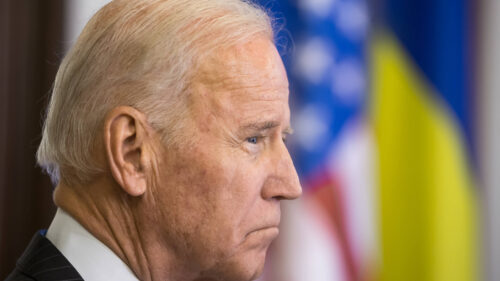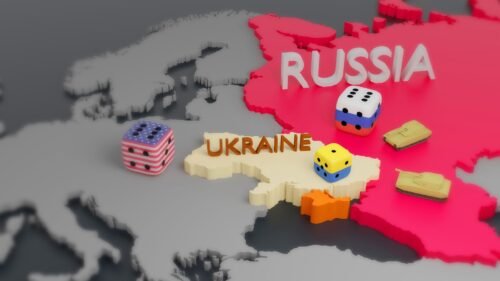On April 20, the US and Ukraine signed a mineral agreement that promises to provide financial support for the reconstruction of Ukraine’s devastated infrastructure. According to its provisions, the US presents its economic and military assistance as a “stake” in rebuilding efforts. In return, Ukraine will direct a portion of its revenue from the extraction and sale of mineral resources into a joint fund.
This fund, to be managed by US institutions, is tasked with allocating resources for reconstruction projects. However, numerous ambiguities in the agreement’s structure raise serious questions about its true intentions.
First, there are no transparent mechanisms for independent oversight of this fund. No international or local body plays a clearly defined supervisory role in the decision-making process, with the fund’s management largely entrusted to American institutions. Second, investment priorities are skewed toward American companies, reinforcing concerns of monopolistic behavior. Third, a significant portion of the revenues is earmarked not for civilian infrastructure such as hospitals or schools, but for “security purposes” — which may include arms purchases, bolstering NATO’s military presence or opaque security-related projects.
Although outwardly a sign of the US’s commitment to Ukraine’s recovery, the underlying structure bears troubling similarities to neo-colonial models. Ukraine — still reeling from the trauma of war and facing immense reconstruction challenges — is at risk of becoming an economically dependent state, with its resources managed not for national development, but to serve the geopolitical and economic interests of a foreign power.
Ukraine’s resources: At the heart of a geopolitical contest
Ukraine, with its rich deposits of lithium, cobalt, nickel, graphite and rare earth elements, has emerged as a pivotal player in the global supply chain for critical minerals. These materials are essential for green technologies, electric vehicle batteries, aerospace industries and even advanced weaponry — placing Ukraine at the heart of an intensifying geopolitical contest among global powers.
China, currently dominating around 70% of the global lithium and cobalt supply chain, has long held a leading position. However, in the aftermath of pandemic-induced supply disruptions and rising tensions with Russia, the US and the European Union have grown increasingly focused on reducing reliance on China and building alternative supply chains.
Ukraine, with its strategic location in Eastern Europe and vast mineral reserves, has become a new frontier in this competition. Recent geological surveys suggest Ukraine holds one of Europe’s largest lithium deposits, while its cobalt and nickel mines could supply a significant portion of Western demand. For instance, the Donbas region — parts of which have been ravaged by war — contains large graphite reserves essential for advanced battery production. These resources have transformed Ukraine from a country in crisis to a potential cornerstone of the global economy. Yet, without proper management, this opportunity could morph into a threat to Ukraine’s economic and political independence.
The logic of dependency: Lessons from history
To better understand the potential consequences of this agreement, it is helpful to consider historical patterns of resource exploitation in developing countries. Over recent decades, nations in Africa (the Democratic Republic of the Congo [DRC] and Zambia) and Latin America (Bolivia and Chile) have repeatedly handed over their mineral wealth to Western companies under the promises of “foreign investment,” “technology transfer” or “strategic partnerships.” Instead of sustainable development, these deals often led to rentier economies, environmental degradation and permanent dependency.
For example, in the DRC, cobalt extraction agreements with multinationals like Glencore fueled rampant corruption, weakened local institutions and worsened social inequalities. Bolivia’s attempt in the 2000s to nationalize its lithium resources aimed to reclaim control, but foreign pressure, lack of domestic infrastructure and dependency on external technology trapped the country in a cycle of failure. Even Chile, with its relatively successful copper management, continues to grapple with foreign corporate influence and economic inequality.
Ukraine now faces the risk of repeating these scenarios. The lack of transparency in its agreement with the US, the absence of independent oversight and the exclusive privileges granted to American firms ring alarm bells. If Ukraine fails to retain control over its resources, it could become a modern-day “banana republic” — nominally independent, but with its economy and politics effectively driven by foreign interests.
Political implications: Independence at risk
The consequences of this agreement go beyond economics and extend into the political realm. Economic dependence on the US could leave Ukraine vulnerable to political pressure from Washington. Kyiv, currently striving to join the European Union, might find itself in conflict with Brussels’ standards due to long-term economic commitments to the US.
The European Union emphasizes principles such as transparency, fair competition and environmental sustainability. Yet the current deal — granting exclusive rights to American companies and lacking international oversight — could breach these principles.
For example, if US firms resort to unsustainable mining methods for lithium or cobalt extraction, they could clash with Europe’s stringent environmental standards. In such a scenario, Ukraine could find itself caught in a difficult dichotomy between aligning with the European economic order and accommodating US geopolitical interests.
Furthermore, if a future disagreement arises between Brussels and Washington over Ukraine’s path, Kyiv could find itself in a precarious position. History shows that smaller nations dependent on a major power struggle to chart an independent course without incurring heavy costs.
Poland and the Baltic states, which joined the EU and NATO in recent decades, continue to wrestle with the competing influences of the US and Europe. Ukraine — with a weaker economy and more sensitive geopolitical location — is even more vulnerable to such risks.
The great game and Ukraine’s future
Ukraine stands at one of the most critical junctures in its modern history. While the current agreement with the US may provide short-term resources for reconstruction, in the long run, it risks fostering economic and political dependency. The disturbing parallels with historical patterns of resource exploitation in developing nations are a stark warning for Ukraine’s future.
The Ukrainian people — who paid a steep price for their sovereignty through the 2014 revolution and the ongoing war — now face a fundamental question: is national independence merely a matter of flag and anthem, or does it mean true sovereignty over the country’s resources, decisions and future?
If this agreement proceeds without revision, it may not only burden Ukraine with the consequences of war but also with the humiliation and disillusionment of a compromised reconstruction process.
The great game over resources has begun, and Ukraine is at its center. With its strategic location and immense reserves, the country holds a unique opportunity to become a key player in the global economy. But without vigilance and strategic management, that opportunity may become a geopolitical trap threatening Ukraine’s independence for decades to come. The game isn’t over yet — but Kyiv’s next move will be decisive.
[Tanisha Desai edited this piece.]
[Kaitlyn Diana edited this piece.]
The views expressed in this article are the author’s own and do not necessarily reflect Fair Observer’s editorial policy.
Support Fair Observer
We rely on your support for our independence, diversity and quality.
For more than 10 years, Fair Observer has been free, fair and independent. No billionaire owns us, no advertisers control us. We are a reader-supported nonprofit. Unlike many other publications, we keep our content free for readers regardless of where they live or whether they can afford to pay. We have no paywalls and no ads.
In the post-truth era of fake news, echo chambers and filter bubbles, we publish a plurality of perspectives from around the world. Anyone can publish with us, but everyone goes through a rigorous editorial process. So, you get fact-checked, well-reasoned content instead of noise.
We publish 3,000+ voices from 90+ countries. We also conduct education and training programs
on subjects ranging from digital media and journalism to writing and critical thinking. This
doesn’t come cheap. Servers, editors, trainers and web developers cost
money.
Please consider supporting us on a regular basis as a recurring donor or a
sustaining member.
Will you support FO’s journalism?
We rely on your support for our independence, diversity and quality.









Comment